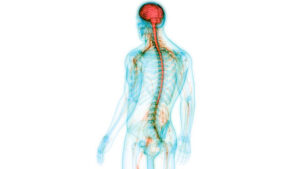Can Massage Make Nerve Pain Worse? Have you ever wondered if that soothing massage you’ve been eagerly anticipating could potentially aggravate your nerve pain? While massages are renowned for their relaxation and pain-relieving benefits, it’s crucial to be mindful of how they may impact individuals suffering from nerve-related issues. Recent studies indicate that up to 20% of people worldwide experience chronic nerve pain, and with the increasing popularity of massage therapies, concerns about their potential adverse effects on nerve conditions have also emerged.
As much as we love indulging in a rejuvenating massage, it’s essential to explore the delicate balance between blissful relief and the possibility of exacerbating nerve discomfort. So, before booking your next session, let’s delve into the science behind it and unravel the truth about how massages can potentially impact nerve pain for better or worse.
Understanding Nerve Pain

Before delving into the potential effects of massage on nerve pain, it is essential to grasp the nature of nerve pain itself. Nerve pain, also known as neuropathic pain, arises from abnormalities in the nervous system. Unlike typical muscle pain, which results from physical trauma or overuse, nerve pain stems from issues with nerve signaling and processing. This can lead to a wide range of sensations, from tingling and burning to sharp, shooting pains.
The Benefits of Massage for Nerve Pain
- Enhanced Blood Circulation: Massage can improve blood flow to the affected area, aiding in the delivery of nutrients and oxygen to the nerves, potentially reducing inflammation and promoting healing.
- Stress Reduction: Chronic nerve pain can lead to stress and anxiety, which may exacerbate the condition. Massage can help reduce stress hormones, providing a sense of relaxation and calm.
- Increased Flexibility: Nerve pain can restrict movement and flexibility. Gentle massage techniques can enhance joint mobility and alleviate stiffness.
- Release of Endorphins: Massage stimulates the release of endorphins, the body’s natural painkillers, which may temporarily alleviate nerve pain.
Risks and Precautions
While massage can offer benefits for nerve pain, it is essential to consider potential risks and take necessary precautions.
- Pressure Sensitivity: People with nerve pain may have heightened sensitivity to touch. It is crucial for massage therapists to use gentle pressure and avoid overstimulating the affected area.
- Nerve Compression: In some cases, nerve pain may be caused by nerve compression. In such situations, aggressive massage techniques could worsen the condition.
- Underlying Medical Conditions: Nerve pain can result from various medical conditions. It is crucial to consult with a healthcare professional before getting a massage to rule out any contraindications.
Types of Massage for Nerve Pain
- Swedish Massage: This gentle and relaxing massage uses long, flowing strokes to promote overall relaxation and circulation, potentially benefiting those with mild nerve pain. Make sure you understand the difference between Swedish massage and Deep Tissue Massage.
- Trigger Point Therapy: This technique focuses on specific areas of muscle tension and may help alleviate referred nerve pain caused by trigger points.
- Myofascial Release: Myofascial release targets the fascia, the connective tissue surrounding muscles. It can aid in releasing tension and reducing nerve compression.
- Reflexology: Reflexology applies pressure to specific points on the feet and hands, potentially affecting corresponding nerves and promoting pain relief.
Read: 5 Incredible Reasons to Try a Coconut Oil Massage Before Bath
When to Avoid Massage for Nerve Pain
While massage can be beneficial for many individuals with nerve pain, there are instances when it should be avoided or approached with caution:
- Acute Nerve Injury: In cases of recent nerve injury, massage should be avoided until the initial healing phase is complete.
- Open Wounds or Infections: Massage should not be performed over areas with open wounds or infections to prevent further complications.
- Severe Nerve Pain: For individuals experiencing severe or debilitating nerve pain, it is best to consult a healthcare professional before considering massage.
Can Massage Make Nerve Pain Worse? 10 Shocking Facts

- Can Massage Make Nerve Pain Worse? Contrary to common belief, certain types of massage may exacerbate nerve pain in some individuals, leading to increased discomfort and potential complications.
- Deep Tissue Massage and Nerve Compression: Studies reveal that deep tissue massage, which involves intense pressure on muscles and tissues, could aggravate nerve compression and cause heightened pain sensations.
- Risk of Nerve Irritation: Prolonged or aggressive massage techniques applied to areas affected by nerve damage may trigger nerve irritation and worsen symptoms, according to medical experts.
- Watch Out for Nerve Entrapment Syndromes: Nerve entrapment syndromes, such as carpal tunnel or sciatica, can be exacerbated by improper massage techniques, risking long-term nerve damage.
- Caution for Chronic Nerve Pain Sufferers: People suffering from chronic nerve pain conditions, like neuropathy, should approach massages with caution, as the wrong approach might intensify their suffering.
- Consult a Qualified Professional: A review of case studies highlights that inappropriate massage therapy in individuals with nerve pain may lead to adverse outcomes, making it crucial to consult a qualified professional.
- Thorough Assessments Matter: It’s essential for massage therapists to conduct thorough assessments before treatment, as undiagnosed nerve issues could be mistaken for muscular problems, worsening the underlying condition.
- Beware of Nerve Inflammation: In rare cases, aggressive deep tissue massage could trigger nerve inflammation, causing nerve pain to spread to previously unaffected areas.
- Certified Professionals for Safe Relief: Engaging inexperienced or untrained masseuses in an attempt to alleviate nerve pain may result in unintended harm, emphasizing the importance of seeking certified professionals.
- Open Communication is Key: While massage can be beneficial for various health concerns, individuals experiencing nerve pain must communicate their condition to therapists to ensure safe and effective treatment.
Next time you consider getting a massage to ease your nerve pain, remember these essential points to make informed choices that protect your well-being. Always prioritize consulting a qualified professional who understands the complexities of nerve-related conditions and can tailor treatments to ensure a safe and soothing experience. After all, the goal is to find relief and comfort without risking any potential exacerbation of your nerve pain. So, take care, communicate openly, and embrace the healing power of massage responsibly.
Conclusion
In conclusion, massage can offer relief and potential benefits for individuals with nerve pain. By improving blood circulation, reducing stress, and promoting relaxation, massage can contribute to managing nerve-related discomfort. However, it is vital to be cautious and communicate openly with a qualified massage therapist to ensure safe and effective treatment.
FAQs
Can massage completely cure nerve pain?
Massage can help manage nerve pain, but it may not completely cure the underlying condition causing the pain.
How often should I get a massage for nerve pain?
The frequency of massage sessions depends on individual needs and the severity of the nerve pain. Consulting with a massage therapist or healthcare professional can help determine the appropriate schedule.
Is nerve pain the same as muscle pain?
No, nerve pain and muscle pain are different. Nerve pain results from issues with the nervous system, while muscle pain is typically due to physical trauma or overuse.
Can massage worsen nerve pain in some cases?
Yes, aggressive massage techniques or applying pressure on sensitive areas can worsen nerve pain. It is essential to communicate any discomfort during the massage session.
Should I inform my massage therapist about my nerve pain condition?
Yes, it is crucial to inform your massage therapist about your nerve pain condition and any specific areas of concern before the session begins. This ensures that they can adjust the treatment accordingly for your safety and comfort.

